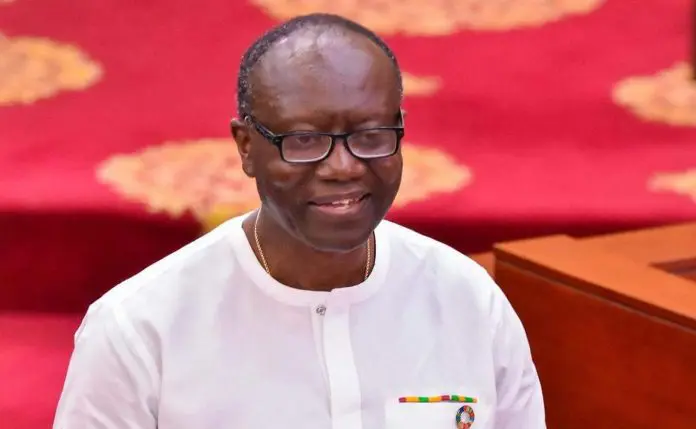The World Bank has said Ghana needs $1.5billion assistance from the International Monetary Fund (IMF).
This could help to shore up public finances and regain access to credit markets, it said.
The World Bank explained in its October 2022 Africa Pulse Report that debt is expected to jump in Ghana to 104.6 percent of GDP, from 76.6 a year earlier amid a widened government deficit, massive weakening of the cedi, and rising debt service costs.
“The country’s debt is expected to remain elevated at 99.7 and 101.8 percent of GDP in 2023 and 2024, respectively. Tightening of financial conditions globally along with the fall of the domestic currency widened the sovereign spread by 233 basis points since December 2021.
“As a result, the country lost access to international markets. It needs $1.5 billion in assistance from the IMF, which could help to shore up public finances and regain access to credit markets.”
It added that “Nevertheless, despite the negotiation with the IMF, investors remain nervous about the country’s debt sustainability.
“These concerns were expressed by the country’s local and foreign currency ratings downgrade from B-/B to CCC+/C. As a result, despite the news, the cedi fell further with ripple effects on inflation.”
Ghana has commenced discussions with the Fund for a programme in order to deal with the economic challenges.
The Finance Minister, Ken Ofori-Atta at a press briefing on Wednesday, September 28 assured that the government would expedite discussion for the programme.
“In line with the President’s dialogue with the IMF Managing Director, Kristalina Georgieva, negotiations will be fast-tracked to ensure that key aspects of the programme are reflected in the 2023 Annual Budget Statement in November 2022,” he said.
He also announced that a 5-member committee consisting of prominent financial services professionals has been put together by the government to lead extensive stakeholder engagements across all the key segments of the financial sector – banking, asset, management, pensions, and insurance.
He said the announcement of the Committee Members will be made in the coming days.
“They will immediately get to work to engage key stakeholders in the financial services sector, additional to ongoing engagements with Civil Society Organizations (CSOs), social partners (labour unions, employers, and FBOs), academia, industry professionals, and the leadership of Parliament,” he said.
Mr Ofori-Atta further stated that the IMF and Government team are working to update the medium-term macro-fiscal framework to inform IMF programme design.
Also, he added, they are discussing policy measures and structural reforms proposed in the economic programme aimed at addressing the economic challenges facing the country towards restoring and sustaining macroeconomic stability, fiscal and debt sustainability, as well as promoting durable and inclusive growth and social protection.
“We simply have not reached any agreement with the Fund on the parameters of any debt operations as we are in the process of completing the debt sustainability analysis.
“Government shall continue to actively engage all stakeholders in a clear and transparent manner as we seek to fast-tract the IMF negotiation process. Ghana needs a viable domestic financial system to support its development programme, especially in these three years with limited access to the International Capital Market. Therefore, everything
must, and will be done, to protect our financial sector; and there must be room for a win-win conversation through extensive stakeholder engagement with both our domestic and external investors. Ghana has always had a collaborative approach with its partners and we
shall, I am confident, come out with an ‘historic arrangement’.
Source: |3news.com|Ghana

